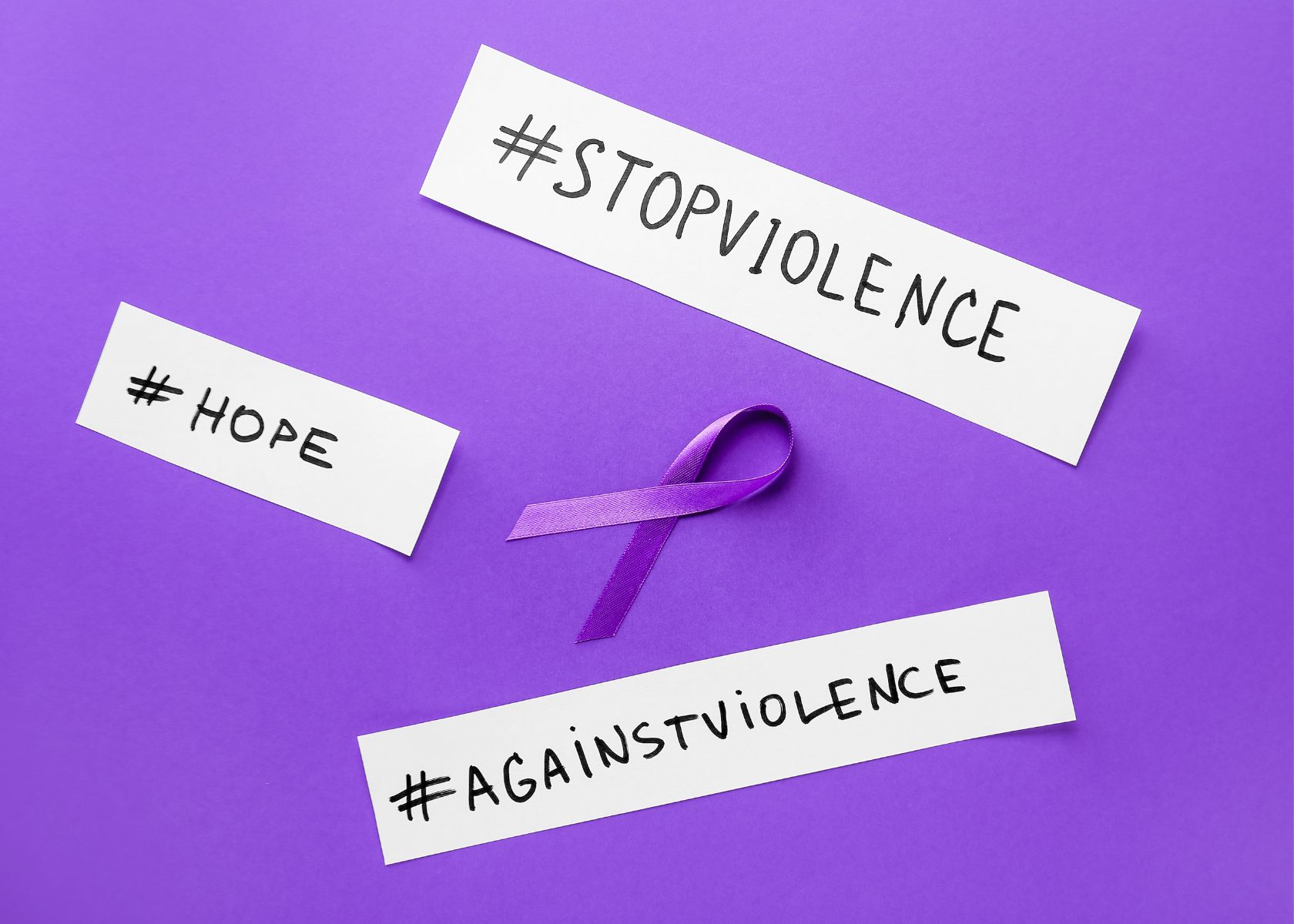
Is the question, “Is it normal for my boyfriend to hit me?” plaguing your mind? It’s crucial to understand that physical abuse in a relationship is never acceptable.
In this article, we will guide you through recognizing an abusive situation and what steps should be taken if you are experiencing such treatment. In short, it is not normal and okay for your boyfriend to hit you. Violence is never okay, even if you say that he hit me for the first time.
It doesn’t matter if he hit you the first time or continuously throughout your relationship; you shouldn’t stay quiet about any form of physical violence.
Don’t suffer in silence; let’s shed light on this issue together.
Why Your Boyfriend Hit You?

Domestic violence refers to the pattern of abusive behavior one person uses to gain power and control over their intimate partner. Signs of an abusive relationship include physical harm, emotional manipulation, sexual coercion, and financial control.
The impact of domestic violence can be devastating, leading to physical injuries, low self-esteem, trauma, and even death.
What Is Domestic Violence?
Domestic violence, a term often heard but not always fully understood, involves harmful acts between people in an intimate relationship. It surfaces as behaviors wherein one person tries to control another through threats or actual use of physical abuse such as hitting.
Control is the linchpin, and it manifests not just physically but can extend to emotional, sexual, and financial realms, too. These actions are all under the abusive behavior’s umbrella, which indicates disagreement or perceived punishment necessity.
While traditionally associated with men inflicting harm upon women, it does occur regardless of gender or other demographic factors. Domestic violence is a profound concern that endangers individual safety and undermines healthy relationship dynamics.
Signs of An Abusive Relationship
Physical abuse is a clear sign of an abusive relationship. When your partner hits you, it is not normal or acceptable behavior. This form of violence includes slapping, punching, pushing, or any other violent act that causes harm.
It often indicates power and control issues within the relationship. Emotional and verbal abuse are also red flags to watch out for in an abusive relationship. Insults, threats, constant criticism, and controlling behavior are all signs that your partner may be emotionally abusive toward you.
It’s important to recognize these warning signs and seek help to ensure your safety and well-being.
Financial abuse is another indicator of an abusive relationship. Your partner may try to control your finances by limiting access to money or forcing you to account for every penny spent.
This kind of manipulation can leave you feeling trapped and dependent on them.
Impact of Domestic Violence
Physical abuse in a relationship has a profound impact on the victim’s well-being. Not only does it cause physical harm, but it also leads to emotional and psychological trauma. Victims often suffer from low self-esteem, anxiety, depression, and post-traumatic stress disorder (PTSD).
Domestic violence can also affect their ability to trust others and form healthy relationships. It is crucial for both individuals and society as a whole to recognize the serious consequences of domestic violence and work towards creating safe environments where everyone can thrive.
Different Forms of Abuse

There are several types of abuse that can occur in a relationship, including physical, emotional/verbal, sexual, and financial abuse.
Physical Abuse
Physical abuse is never acceptable in a relationship. It involves the use of physical force to harm or control another person. This can include hitting, slapping, punching, or any other physically aggressive behavior.
It is important to recognize that physical abuse is not a normal part of a healthy relationship. It is a clear sign of an abusive dynamic where one partner uses violence as a way to exert power and control over the other.
If you are experiencing physical abuse, it’s crucial to seek help immediately to ensure your safety and well-being.
Emotional/Verbal Abuse
Emotional/verbal abuse is another form of abuse that can occur in a relationship. It involves the use of words, gestures, or actions to manipulate, belittle, or control the other person.
This kind of abuse can cause significant emotional and psychological harm. For example, constant criticism, name-calling, humiliation, gaslighting, and threats can wear down a person’s self-esteem over time.
It is important to recognize that emotional/verbal abuse is not normal or acceptable in any relationship. Seeking help and support from trusted friends and professionals is crucial for those experiencing emotional/verbal abuse.
Abusive behaviors like emotional/verbal abuse often aim to exert power and control over the other person. Individuals who engage in this type of behavior may use it as a way to maintain dominance or gain an advantage in the relationship dynamic.
Sexual Abuse
Sexual abuse is another form of domestic violence that should never be considered normal in a relationship. It involves unwanted sexual acts or forcing someone to engage in sexual activities without their consent.
This can include acts such as rape, sexual assault, harassment, and coercion. Sexual abuse leaves deep emotional scars and can cause lasting trauma for the victim. It is essential to recognize the signs of sexual abuse and seek help immediately if you or someone you know is experiencing it.
Remember, no one ever deserves to be sexually abused or violated in any way, regardless of the circumstances.
Financial Abuse
Financial abuse is another form of domestic violence that can occur in relationships. It involves the control and manipulation of a person’s finances by their partner, boyfriend, or husband.
This can include restricting access to money, forcing them to account for every penny spent, preventing them from working or studying, or even stealing their funds. Financial abuse is a way for the abuser to maintain power and control over their victim.
It is important to recognize this type of abuse and seek help if you are experiencing it. Organizations like the National Domestic Violence Hotline provide resources and support for those facing financial abuse in a relationship.
Is it Normal for My Boyfriend to Hit Me?

No, it is not normal for your boyfriend to hit you under any circumstances.
No, It Is Not Normal
Physical abuse within a relationship is never normal or acceptable. It is important to understand the difference between playful slaps and harmful acts of violence. Hitting your partner is a form of physical abuse and should not be dismissed as a normal part of a romantic partnership.
Abusive behavior, such as hitting, signals disagreement, anger, or the belief that punishment is necessary. This type of aggression can cause physical harm, emotional trauma, and damage trust in the relationship.
If you are experiencing physical abuse from your boyfriend or partner, it is crucial to seek help and establish clear boundaries to ensure your safety.
It’s essential to recognize that physical violence in a relationship is not justifiable under any circumstances. Remember that domestic violence hotline services are available 24/7 for confidential support if you find yourself in an abusive situation with your boyfriend or partner.
The Difference Between Playful and Harmful Slaps
Playful slaps may occur between close friends or partners as a form of light-hearted joking. These slaps are non-violent, mutually consensual, and do not cause harm or distress to either party involved.
However, harmful slaps are a form of physical abuse that can cause pain, injury, and emotional trauma. They are not consensual and indicate a power imbalance within the relationship.
It is crucial to distinguish between playful and harmful slaps to ensure the safety and well-being of individuals experiencing physical abuse in relationships. Domestic violence hotlines provide confidential support for those facing abusive situations.
Therapists Are Standing for Your Mental Health Needs

Learn how to set boundaries in your relationship and discover the importance of speaking out against domestic violence. Plus, find valuable resources available for victims of abuse.
How to Set Boundaries in A Relationship?
Setting boundaries in a relationship is crucial to maintaining a healthy and respectful partnership. It involves clearly communicating your needs, desires, and limits to your partner.
Start by identifying what is acceptable and unacceptable behavior for you personally. Then, have an open conversation with your partner about these boundaries. Be assertive and firm when expressing yourself, making it clear that certain actions or behaviors are not tolerable.
Remember that setting boundaries does not mean being controlling or demanding; it simply means defining what makes you feel safe, respected, and valued in the relationship. By establishing these boundaries together, you can create a strong foundation of mutual understanding and trust.
The Importance of Speaking Out
Speaking out about domestic violence is crucial for breaking the cycle of abuse and seeking help. It’s important to remember that you are not alone, and there are resources available to support you.
By speaking up about your experiences, you can empower others who may be going through similar situations to also find the courage to seek assistance. Domestic violence thrives in silence, so by raising your voice, you take a powerful step toward reclaiming your safety and well-being.
Remember, there are professionals ready to listen and provide guidance at any time through hotlines like the National Domestic Violence Hotline.
Resources for Victims of Abuse
Victims of abuse have a wide range of resources available to them. The National Domestic Violence Hotline is a confidential service that offers support 24/7/365 for individuals experiencing domestic violence.
They can provide guidance, safety planning, and resources for finding shelter or legal assistance. Local organizations such as women’s shelters and crisis centers also offer support services, counseling, and help with accessing community resources.
Remember that you are not alone – there are people who want to help you through this difficult time. Reach out and utilize these resources to take the first step toward safety and healing.
Frequently Asked Questions
Is it normal for my boyfriend to get upset and hit me?
No, it is not okay for a boyfriend or anyone to turn into an aggressor and use force when he disagrees or gets upset. This is considered relationship abuse or intimate partner violence.
What should I do if my boyfriend hits me during a fight?
If your boyfriend becomes an aggressor during fights, you should seek help immediately from trusted adults. Remember that toxic relationships are unhealthy and dangerous.
Can hitting be classified as emotional abuse in a relationship?
Yes, hitting – along with other aggressive behaviors – can be deemed as emotional abuse in relationships; such acts violate important relationship boundaries.
How can I avoid becoming involved in toxic relationships?
Understanding the signs of emotional abuse, like aggression, frequent disagreements turned violent, etc., can help prevent you from getting involved in potentially toxic relationships.
Conclusion
It is important to recognize that physical abuse from a boyfriend is never normal or acceptable. It indicates a concerning dynamic in the relationship and should not be tolerated.
Seeking help and support is crucial for ensuring your safety and well-being. Remember, you deserve to be in a healthy and respectful relationship where violence has no place.